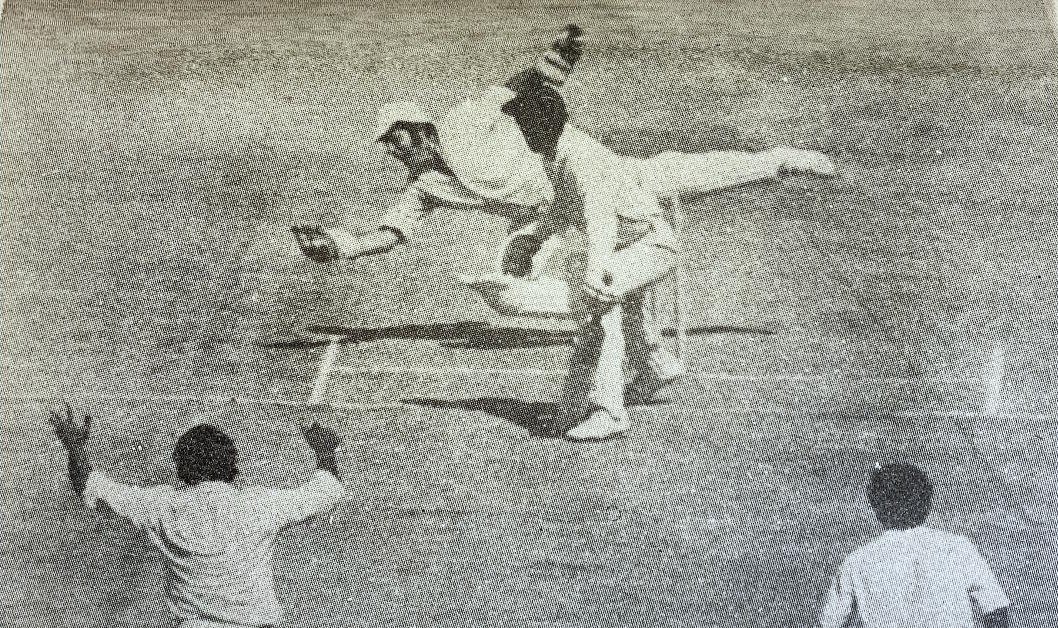Many Parsis cricketers for India appeared occasionally, realizing his importance in Indian cricket culture. Had India’s first Test match occurred before 1932, more Parsis cricketers would have won Test caps because Parsis cricketers had lost their preeminence.
Nari Contractor was the captain of India and a left-handed batsman who scored 1,611 Test runs at 31.58. He must have been accident-prone because, besides the Griffith injury, his mother went into labor on a train in the middle of Gujarat. Fortunately, Nari’s uncle was the train driver.
Farokh Engineer played for India from 1961 to 1975 as a genuine all-round wicketkeeper. He scored 2,611 runs in forty-six Tests, besides warding off the wicket-keeping challenge of B. K. Kunderan and becoming one of Lancashire’s favorite sons.
Rusi Modi: In his few Test matches, he made 736 runs at an average of 46. He was a run-maker on the Merchant scale before retiring early and is the only batsman to have made 1,000 runs in one Ranji Trophy season (at an average of 201).
Pehlon (Polly) Umrigar, as both a vigorous hitter and a dourly defensive batsman, scored 3,631 Test runs at 42.22, despite his reputation for not favoring the fastest bowling. He also took 35 Test wickets. He was a d’Oliveira-type bowler.
Soli H. M. Colah (Sorabji Hormasji Munchersha Colah) was a left-handed batsman; he was one of two Parsis, along with Palia, in India’s first Test at Lord’s in 1932. He played two test matches and scored 69 runs, with the best of 31. Colah, who was among the players that played for India in their inaugural Test match in 1932, was a promising young batsman and outstanding fielder. In the Ranji Trophy, he captained the Parsis in the Bombay Pentangular and represented Western India States and Nawanagar.
Rusi Surti took forty-two Test wickets with his slow- and medium-pacer left-arm bowling, but it was his batting (1,263 Test runs at 28.70) that took him into Queensland’s stateside. It was typical that a Parsi should be the first Indian to play in the Sheffield Shield. Additionally, he was a fearless batsman, a terrific outfielder, and a slip fielder. Witnessing Surti in action was a novel experience.
Piloo Palia (Phiroze Edulji Palia) played two Tests as a graceful left-handed batsman and a defensive slow left-arm bowler. He was injured on the field; he was almost impossible to walk in the second inning, so he batted as the last man. In 1936, he returned to England and played at Lord’s.
Khershedji Rustomji Meherhomji toured England in 1936 as a wicketkeeper and played in one Test at Manchester. He played for several sides in the Ranji Trophy and represented Parsis in the Bombay Pentangular. His uncle, Rustomji Meherhomji traveled to England with the 1911 All India team. He was the uncle of the Australian cricket statistician Kersi Meher-Homji.
Keki Tarapor was an Indian cricket player and administrator who participated in just one Test match in 1948. He was a left-arm spinner and the secretary of the CCI in Bombay. It was said that he has the ability to quite any batsman, even C. K. Nayudu. He administered the Indian teams that traveled to the West Indies in 1970–71 and England in 1967.
Rustom Jamshedji was a gifted but profligate left-arm spin bowler; he could make the ball hum in the air. One story about him is repeated so often it must hold a grain of truth: that Wilfred Rhodes said when he saw Jamshedji: ‘If I had his power of spin, no batting side would ever make a hundred.’
Jamshed Jiji Irani was a talented wicketkeeper who toured Australia in 1947–48. He was awarded the Padma Bhushan in 2007 and went on to serve on the boards of other Tata group enterprises as well as other businesses.
